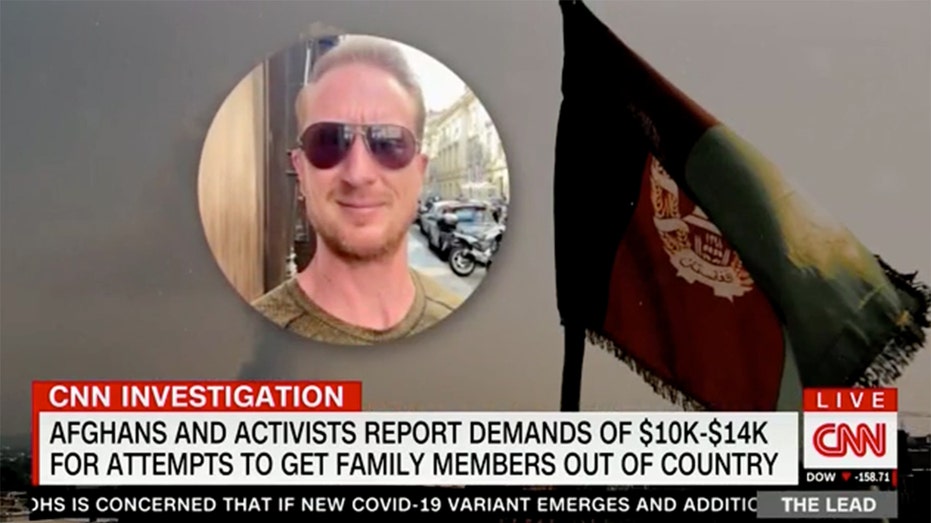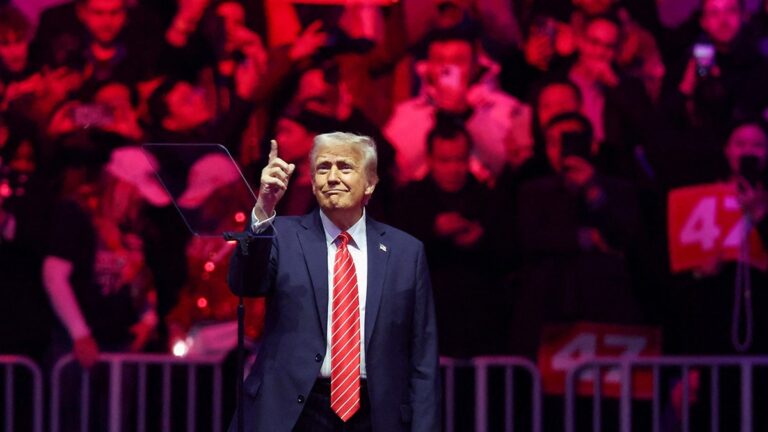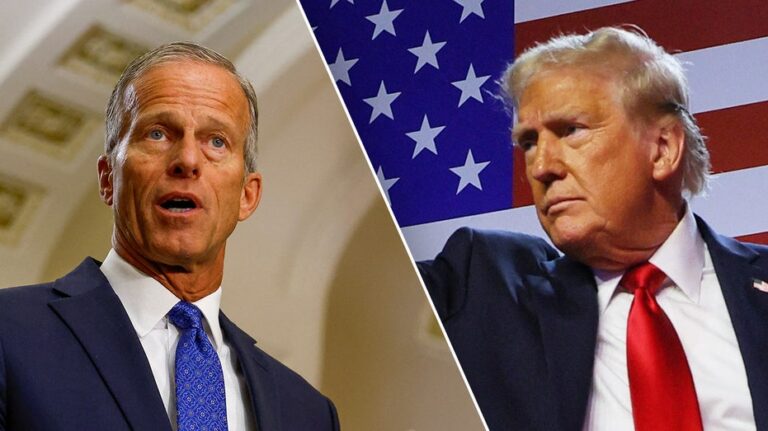
U.S. Navy veteran Zachary Young Young alleges CNN smeared him by implying he illegally profited when helping people flee Afghanistan during the Biden administration’s withdrawal from the country.
A Florida judge on Friday sided with U.S. Navy veteran Zachary Young, who is suing CNN for defamation, on several critical issues as the high-stakes trial is set to begin next month.
Young alleges that CNN smeared him by implying he illegally profited via a “black market” when helping people flee Afghanistan during the Biden administration’s military withdrawal from the country in 2021. Young believes CNN “destroyed his reputation and business” during a segment that year on Jake Tapper’s program “The Lead,” which was shared on social media and also repackaged for CNN’s website.
Judge William Henry denied CNN’s motion for summary judgment, allowing Young to “proceed with his claim for punitive damages” and declaring the court found he “did not take money from Afghans.”
CNN FACES DEFAMATION SUIT OVER AFGHANISTAN WITHDRAWAL STORY: ‘EVIDENCE OF ACTUAL MALICE’
“Despite claiming it did ‘three weeks of newsgathering’ and ‘spoke with more than a dozen sources,’ Defendant’s representatives acknowledged it had no evidence that Young did anything criminal or illegal. Yet, Defendant used the Black Market Chyron. This is sufficient evidence upon which a reasonable jury could find with convincing clarity that Defendant acted with actual malice to survive summary judgment on this issue,” Judge Henry ruled in court documents obtained by Fox News Digital.
“Defendant had no evidence of illegality and Young said he was not contracting with or taking money from individuals. Despite this, Defendant published his name and photograph as the poster child bad actor preying on Afghans,” he continued. “Accordingly, the record evidence could support a conclusion that Defendant aired and posted the Pieces knowing the gist was false or with reckless disregard as to whether the gist was false or not.”
CNN’s legal team had argued that Young’s actions violated the Taliban’s Sharia law, but Judge Henry slapped down the notion he violated a law.
“Framing these circumstances as a ‘debate’ between the Taliban rulers and the rest of the free world would be akin to saying it was debatable whether the Nazi extermination of the Jews at Auschwitz was wrong,” Judge Henry wrote.
Judge Henry also called out CNN’s legal team for failing to nail down how Young operated in an unregulated “black market.”
“The fundamental problem with Defendant’s arguments is that they rely on its own proffered definition of ‘black market,’ which has been a moving target throughout this litigation, and ignore the potential that “black market” connotes illegality or criminality,” Judge Henry wrote.
It wasn’t a complete shutout for CNN’s legal team. Judge Henry agreed that Young’s company, Nemex Enterprises, Inc. would not be considered for damages.
The CNN segment at the center of the suit began with Tapper informing viewers that CNN correspondent Alex Marquardt found “Afghans trying to get out of the country face a black market full of promises, demands of exorbitant fees, and no guarantee of safety or success.”
CNN’s legal team argued that Young “thrust himself into this controversy by reaching out to” CNN reporter Katie Bo Lillis initially. However, Judge Henry wrote that “a brief review of this communication does not demonstrate, at least on its face, that Young was seeking to thrust himself into the media spotlight concerning Afghanistan. Rather, his initial communication was a ‘business call.’ He reached out to see if Lillis needed someone to provide evacuation services.”
“One could say Marquardt had his narrative that he wanted to portray (‘bad people preying on Afghans’). In fact, Marquardt’s initial pitches for the story between October 26-28, 2021, included the explosive phrases ‘price gouging,’ ‘extortion of desperate Afghans,’ ‘shadowy black market’ and then concluded that he wanted ‘to examine to what extent this is extortion or fraud.’ Then, fortuitously, a door was opened to obtain information for the piece when Young reached out to Lillis. Lillis cultivated this relationship, albeit in an underhanded manner by not disclosing Defendant’s reporters’ motivations or that they were going to use his identity,” Judge Henry wrote.
“Once Young stopped cooperating with the investigative reporters, Marquardt found his ‘fall guy’ – Young, despite the fact that Young did not check all the boxes. Nonetheless, Marquardt had the “face” of the bad guys to put on screen. Defendant had no evidence Young did anything illegal, yet it chose the Black Market Chyron and only highlighted him in the Segment,” he added. “They had information that Young was not working directly with or taking money from individual Afghans, but he could be the bad guy preying on Afghans. And collectively they put together a narrative that despite having holes, would paint Young in the worst light knowingly using false information or at least in a reckless manner.”
CNN ACCUSED OF WITHHOLDING CRITICAL DOCUMENTS NEEDED TO DETERMINE VALUE AHEAD OF DEFAMATION TRIAL
Judge Henry also found sufficient evidence of actual malice and found that Young never took money from Afghans.
“There are several examples of statements made by Defendant’s reporters during the course of putting together the pieces from which a jury may infer either actual malice or express malice,” he wrote.
The civil trial is scheduled to begin on Jan. 6 in front of Judge Henry in the Circuit Court for Bay County, Florida.
“The Court grants Plaintiffs’ Second Motion for Summary Judgment and finds that Plaintiffs did not take money from Afghans,” Judge Henry ruled.
The court previously ruled that Young “did not do anything criminal or illegal.”



